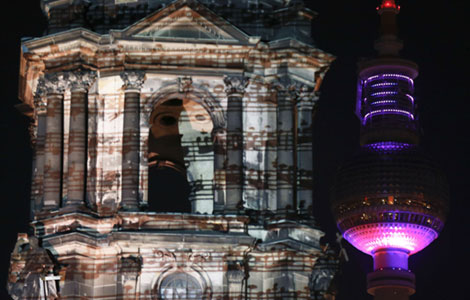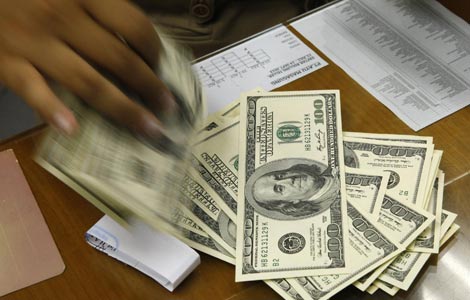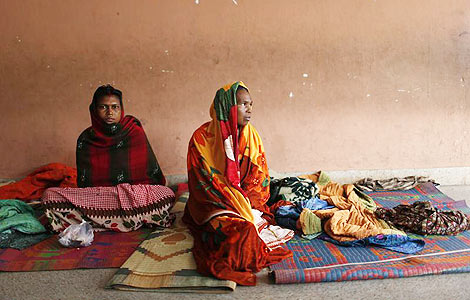

Experts expect nuclear talks to be a 'grind'
Don't expect a breakthrough, but the chances for progress have seldom been better. This is the message coming from Iran and six world powers ahead of renewed talks this week meant to end a decade of deadlock on Teheran's nuclear program.
The two sides come to the negotiating table in Geneva on Tuesday and Wednesday amid a feel-good atmosphere that began with the June election of centrist Iranian President Hassan Rouhani. Subsequent conciliatory comments by Iranian officials were capped last month by a phone call between Rouhani and his US counterpart Barack Obama - the first conversation between US and Iranian leaders in more than three decades.
Iran insists it does not want nuclear weapons. But building on the momentum of that telephone call, Iranian officials from Rouhani down say their country is ready to meet some international demands to reduce its nuclear activities.
If so, the talks - including the United States, Britain, France, Russia, China and Germany - could be the launching pad for a deal that has proven elusive since negotiations on Iran's nuclear program began in 2003. A deal would also reduce the threat of war between Iran and Israel and possibly the US. The latter two nations' leaders have repeatedly warned they would never accept a nuclear-armed Iran.
From the six-power perspective, the ideal solution would be for Teheran to scale back aspects of its nuclear program. That would trigger a gradual lifting of the economic sanctions crippling Teheran's economy.
Even if achievable, an end-game is far away.
Gary Samore, part of the US nuclear negotiating team with Iran until earlier this year, said the Geneva talks offer "the best opportunity of a decade". At the same time, he expects "a very slow grind".
Heading Iran's delegation at the talks is Iranian Foreign Minister Javad Zarif, a veteran, US-educated diplomat who honed his skills as part of Teheran's team negotiating a cease-fire with Iraq 25 years ago. He said his country is ready to allow more intrusive international perusal of Teheran's nuclear program.
Other Iranian officials, meanwhile, said there is room to discuss international concerns about Iranian uranium enrichment to 20 percent - a level that is higher than most reactors use for power and only a technical step away from weapons-grade uranium suitable for warheads.
Iran now has nearly 200 kilograms of 20 percent-enriched uranium in a form that can be quickly upgraded for weapons use, said the United Nation's atomic agency. That is close to - but still below - what is needed for one nuclear weapon. But even if Iran agrees to stop 20-percent production, ship out its 20-percent stockpile and allow more oversight by UN nuclear inspectors, the six powers want more.
A former senior UN official who has acted as an intermediary between US and Iranian officials said the six seek far tighter restrictions on Iran's uranium enrichment program. He demanded anonymity because he was not authorized to publicly discuss his exploratory talks with both sides.
Specifically, the official said the six powers want significant cuts in the more than 10,000 centrifuges now enriching uranium. They also demand that Iran ship out not only the small amount of 20 percent uranium it now has but also most of the tons of low-enriched uranium it has produced. And they want caps on the amount of enriched uranium that Iran would be allowed to keep at any time.
Iran said it needs this material to power a future reactor network, and Iranian television on Sunday quoted negotiator Abbas Araghchi as saying Teheran would never ship enriched materials abroad, describing that stance as "our red line".
For the US and its allies, low-enriched uranium is also problematic because it can also be used to arm nuclear weapons, albeit the process is longer and more complicated than for 20-percent uranium.
"It's pretty clear that Iran will have to be allowed some degree of enrichment," said former US State Department official Mark Fitzpatrick. "But the enrichment has to be limited."
The former UN official said that his talks with senior Iranian officials indicate there will be tough bargaining on centrifuge numbers. Even if Teheran agrees to downsize enrichment, the Iranians will probably offer stiff resistance to closing the Fordo uranium enrichment facility, he said in summarizing his talks with senior Iranian officials directly involved in the upcoming negotiations.
Still, Rouhani and Zarif appear to have the backing of Iranian supreme leader Ayatollah Ali Khamenei to at least explore options that would ease the sanctions crippling Iran's oil exports and financial transactions. Khamenei said he backs "heroic flexibility" in negotiations, while cautioning against too much trust in his country's enemies.
But that support may fade unless Zarif can show quick progress to skeptics at home. If he cannot pull it off, the momentum may fizzle and stalemate could be renewed.
Former Iranian nuclear negotiator Ali Larijani, who now heads Iran's parliament, spoke of "suspicious" Iranian hardliners with influence in a recent interview.
Samore, the former US negotiator who now is with Harvard University's Belfer Center, also said Zarif may be hobbled by "internal resistance to making any significant concessions".
AP - Reuters







